The four tournament games played at the European championships of 2011 were
- 7 Wonders
- Navegador
- Olympos
- Troyes
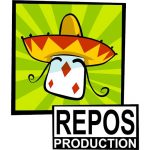
You are the leader of one of the 7 great cities of the Ancient World. Gather resources, develop commercial routes and affirm your military supremacy. Build your city and erect an architectural wonder which will transcend future times.
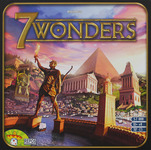
7 Wonders lasts three ages. In each age, players receive seven cards from a particular deck, choose one of those cards, then pass the remainder to an adjacent player. Players reveal their cards simultaneously, paying resources if needed or collecting resources or interacting with other players in various ways. (Players have individual boards with special powers on which to organize their cards, and the boards are double-sided). Each player then chooses another card from the deck they were passed, and the process repeats until players have six cards in play from that age. After three ages, the game ends.
In essence 7 Wonders is a card development game. Some cards have immediate effects, while others provide bonuses or upgrades later in the game. Some cards provide discounts on future purchases. Some provide military strength to overpower your neighbors and others give nothing but victory points. Each card is played immediately after being drafted, so you’ll know which cards your neighbor is receiving and how his choices might affect what you’ve already built up. Cards are passed left-right-left over the three ages, so you need to keep an eye on the neighbors in both directions.

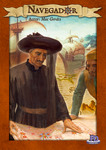
Navegador is inspired by the Portuguese Age of Discoveries in the 15th-16th century. Players take actions such as contracting men, acquiring ships and buildings, sailing the seas, establishing colonies in discovered lands, trading goods on the market, and getting privileges.Each player starts with only two ships and three workers and tries to expand his wealth.There are several undiscovered lands that allow players, once discovered, to found some colonies there. Colonies exist in different places where sugar, gold and spices are available and can be sold to the market to make some money. Money is used to build ships, erect buildings such as factories, shipyards and churches, and to get workers. Workers are necessary to found colonies or to acquire buildings and privileges, which exist in five categories and therefore encourage players to follow different strategies competing with each other.At the end of the game the player who is most successful in combining his privileges with his achievements (colonies, factories, discoveries, shipyards, and churches) is the winner. .
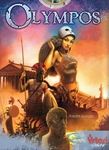

With Olympos, coming from French publisher Ystari Games, Keyaerts has another go at the simplified civilization game. The playing time for Olympos is only 60-90 minutes for 3-5 players, but says Ystari’s Cyril Demaegd, “Even if it’s a short game, it’s a gamer’s game.”Players take actions based on their position on a time track, along the lines of Peter Prinz’ Thebes. (Says Demaegd, “This is mainly a coincidence because Philippe designed this game years ago.”) By spending time, players take actions, with the choices being expansion or development. Expanding brings new settlers onto the game board, which depicts Greece and Atlantis, which lets you conquer territories and thereby acquire resources.Development takes place on the game’s discovery board, with players either buying new scientific discoveries – such as medicine or phalanxes – or building architectural wonders. Each discovery brings you new powers, such as an upgrade in military strength due to the phalanx, and each wonder earns you points.
A player’s piety is measured by discoveries, and the most pious player might be rewarded during the game by one of the nine gods included. Similarly, the less pious players might be punished by those same gods.
The replayability of Olympos is huge, says Demaegd, as the discovery board and gods in play will be different each game, not to mention the territories you’re able to conquer.
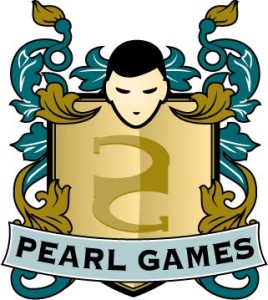
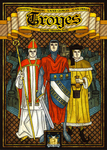
In Troyes, recreate four centuries of history of this famous city of the Champagne region of France. Each player manages their segment of the population (represented by a horde of dice) and their hand of cards, which represent the three primary domains of the city: religious, military, and civil.
Players can also offer cash to their opponents’ populace in order to get a little moonlighting out of them—anything for more fame!Make your underlings:
- work on the cathedral
- combat misfortune
- bustle about the city
- and other such tasks that are below your family’s stature
With many thanks to boardgamegeek.
